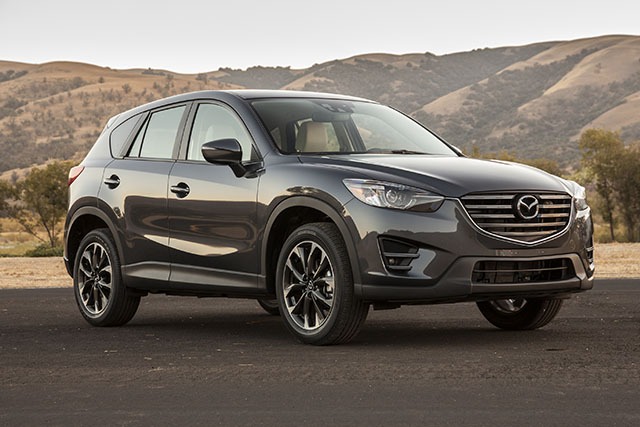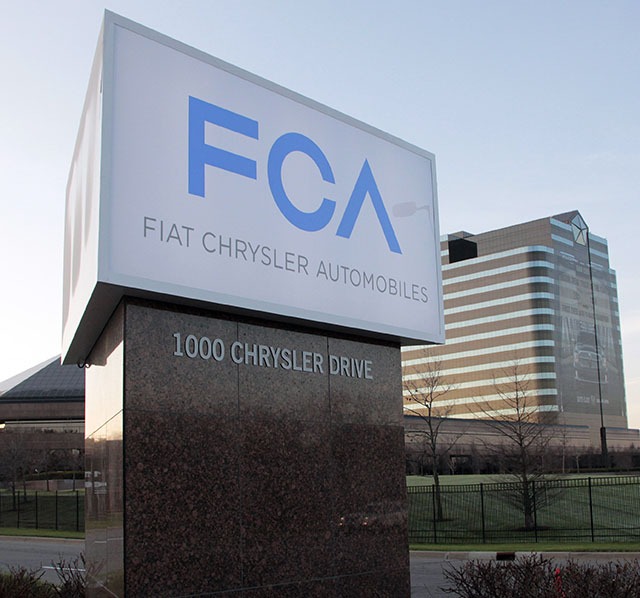-
Posts
32,884 -
Joined
-
Last visited
-
Days Won
5
Content Type
Forums
Articles
Garage
Gallery
Events
Store
Collections
Everything posted by William Maley
-
From the album: 2017 Nissan Titan and Titan XD
-
From the album: 2017 Nissan Titan and Titan XD
-
From the album: 2017 Nissan Titan and Titan XD
-
From the album: 2017 Nissan Titan and Titan XD
-
From the album: 2017 Nissan Titan and Titan XD
-
From the album: 2017 Nissan Titan and Titan XD
-
From the album: 2017 Nissan Titan and Titan XD
-
From the album: 2017 Nissan Titan and Titan XD
-
From the album: 2017 Nissan Titan and Titan XD
-
From the album: 2017 Nissan Titan and Titan XD
-
From the album: 2017 Nissan Titan and Titan XD
-
From the album: 2017 Nissan Titan and Titan XD
-
From the album: 2017 Nissan Titan and Titan XD
-
From the album: 2017 Nissan Titan and Titan XD
-
From the album: 2017 Nissan Titan and Titan XD
-
From the album: 2017 Nissan Titan and Titan XD
-
From the album: 2017 Nissan Titan and Titan XD
-
From the album: 2017 Nissan Titan and Titan XD
-
From the album: 2017 Nissan Titan and Titan XD
-
From the album: 2017 Nissan Titan and Titan XD
-
Mazda has been leading the pack when it comes to fuel economy. This year, the Japanese automaker became the first non-electric automaker to reach 100 percent compliance with the 2016 CAFE standards (fleet average of 34.1 mpg). Mazda credits their Skyactiv technologies of pulling this feat off. But future standards may put Mazda in a difficult spot. During a roundtable last week, Masahiro Moro, CEO of Mazda North American Operations said meeting CAFE standards for 2025 will be very tough. “For 2021, we are very confident we will meet the CAFE standards. 2025 is another story because the requirement level is very, very high,” said Moro. At the time of the roundtable, the U.S. Government hadn't cut the 2025 goal of 54.5 mpg. But even achieving between an average of 50 to 52.6 for the fleet will be difficult, especially with Mazda wanting to sell more crossovers. Moro said that the automaker would have to likely embrace some sort of electrification plan, most likely a hybrid system. But there is another stumbling block Mazda needs to figure out. By 2025, California and nine other states have mandated that 15 percent of new car sales need to be zero-emission vehicles. “To me, the biggest regulatory headache right now is ZEV,” said Moro. In the meantime, Moro said that the company would be introducing the second-generation of their Skyactiv technologies in 2017. This will be the main motivator for Mazda to meet the 2021 standards. The key part of the second-generation Skyactiv technologies will be homogenous-charge compression ignition combustion (HCCI) engines that mimic the compression combustion found in diesel engines. We have heard automakers working on this technology and some even announcing that it would be out in few years time, and not happening. Moro admits that HCCI engines are a “very difficult and delicate technology,” so Mazda is trying its best to make sure the engines are durable. As for the diesel engine in the U.S., Moro said a decision would be coming shortly. Later in the week, Mazda CEO Masamichi Kogai to Automotive News that the company is still planning a debut of their diesel engine for the U.S. In fact, there is an internal timeline for the launch. But he isn't saying anything about the timeline. Source: Automotive News (Subscription Required), 2 View full article
-

Mazda Could Be Hitting A Ceiling When It Comes To Fuel Economy
William Maley posted an article in Mazda
Mazda has been leading the pack when it comes to fuel economy. This year, the Japanese automaker became the first non-electric automaker to reach 100 percent compliance with the 2016 CAFE standards (fleet average of 34.1 mpg). Mazda credits their Skyactiv technologies of pulling this feat off. But future standards may put Mazda in a difficult spot. During a roundtable last week, Masahiro Moro, CEO of Mazda North American Operations said meeting CAFE standards for 2025 will be very tough. “For 2021, we are very confident we will meet the CAFE standards. 2025 is another story because the requirement level is very, very high,” said Moro. At the time of the roundtable, the U.S. Government hadn't cut the 2025 goal of 54.5 mpg. But even achieving between an average of 50 to 52.6 for the fleet will be difficult, especially with Mazda wanting to sell more crossovers. Moro said that the automaker would have to likely embrace some sort of electrification plan, most likely a hybrid system. But there is another stumbling block Mazda needs to figure out. By 2025, California and nine other states have mandated that 15 percent of new car sales need to be zero-emission vehicles. “To me, the biggest regulatory headache right now is ZEV,” said Moro. In the meantime, Moro said that the company would be introducing the second-generation of their Skyactiv technologies in 2017. This will be the main motivator for Mazda to meet the 2021 standards. The key part of the second-generation Skyactiv technologies will be homogenous-charge compression ignition combustion (HCCI) engines that mimic the compression combustion found in diesel engines. We have heard automakers working on this technology and some even announcing that it would be out in few years time, and not happening. Moro admits that HCCI engines are a “very difficult and delicate technology,” so Mazda is trying its best to make sure the engines are durable. As for the diesel engine in the U.S., Moro said a decision would be coming shortly. Later in the week, Mazda CEO Masamichi Kogai to Automotive News that the company is still planning a debut of their diesel engine for the U.S. In fact, there is an internal timeline for the launch. But he isn't saying anything about the timeline. Source: Automotive News (Subscription Required), 2 -
Following the news last week that Fiat Chrysler Automobiles was under investigation by both the Department of Justice and Securities and Exchange Commission over inflated sales, Automotive News has learned from various sources that an investigation done by the company revealed misreported sales numbers. According to the sources, FCA ordered an internal review last year over their sales reporting. What the review found is "that 5,000 to 6,000 vehicles had been reported as sold by dealers and then "unwound." It is unknown the time period that was covered by the review. After the review, U.S. sales head Reid Bigland attempted to put a stop to the practice. But a source said the overstating of sales has been creeping back in this year due to increased competitive pressures on FCA's field staff. Another source says this increased pressure is causing the turnover rate of FCA's sales staff to be four times higher than the rest of the company. But why inflate the numbers in the first place? According to the sources, the inflation was to help preserve FCA's of U.S. monthly year-over-year sales increases (which currently stands at 75 months). This run is the longest streak of any automaker and has been a source of pride for them. But interestingly, Automotive News notes that FCA stopped mentioning this fact on its March sales release. This is also the same time they added this disclaimer, "FCA US reported vehicle sales represent sales of its vehicles to retail and fleet customers, as well as limited deliveries of vehicles to its officers, directors, employees and retirees. Sales from dealers to customers are reported to FCA US by dealers as sales are made on an ongoing basis through a new vehicle delivery reporting system that then compiles the reported data as of the end of each month." "Sales through dealers do not necessarily correspond to reported revenues, which are based on the sale and delivery of vehicles to the dealers. In certain limited circumstances where sales are made directly by FCA US, such sales are reported through its management reporting system." FCA declined to comment. Source: Automotive News (Subscription Required) View full article
- 3 replies
-
- FCA
- Fiat Chrysler Automobiles
-
(and 3 more)
Tagged with:
-

Internal Audit Reveals FCA Found 5,000 to 6,000 Bogus Sales
William Maley posted an article in Chrysler
Following the news last week that Fiat Chrysler Automobiles was under investigation by both the Department of Justice and Securities and Exchange Commission over inflated sales, Automotive News has learned from various sources that an investigation done by the company revealed misreported sales numbers. According to the sources, FCA ordered an internal review last year over their sales reporting. What the review found is "that 5,000 to 6,000 vehicles had been reported as sold by dealers and then "unwound." It is unknown the time period that was covered by the review. After the review, U.S. sales head Reid Bigland attempted to put a stop to the practice. But a source said the overstating of sales has been creeping back in this year due to increased competitive pressures on FCA's field staff. Another source says this increased pressure is causing the turnover rate of FCA's sales staff to be four times higher than the rest of the company. But why inflate the numbers in the first place? According to the sources, the inflation was to help preserve FCA's of U.S. monthly year-over-year sales increases (which currently stands at 75 months). This run is the longest streak of any automaker and has been a source of pride for them. But interestingly, Automotive News notes that FCA stopped mentioning this fact on its March sales release. This is also the same time they added this disclaimer, "FCA US reported vehicle sales represent sales of its vehicles to retail and fleet customers, as well as limited deliveries of vehicles to its officers, directors, employees and retirees. Sales from dealers to customers are reported to FCA US by dealers as sales are made on an ongoing basis through a new vehicle delivery reporting system that then compiles the reported data as of the end of each month." "Sales through dealers do not necessarily correspond to reported revenues, which are based on the sale and delivery of vehicles to the dealers. In certain limited circumstances where sales are made directly by FCA US, such sales are reported through its management reporting system." FCA declined to comment. Source: Automotive News (Subscription Required)- 3 comments
-
- FCA
- Fiat Chrysler Automobiles
-
(and 3 more)
Tagged with:
























